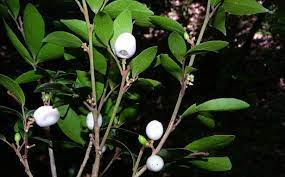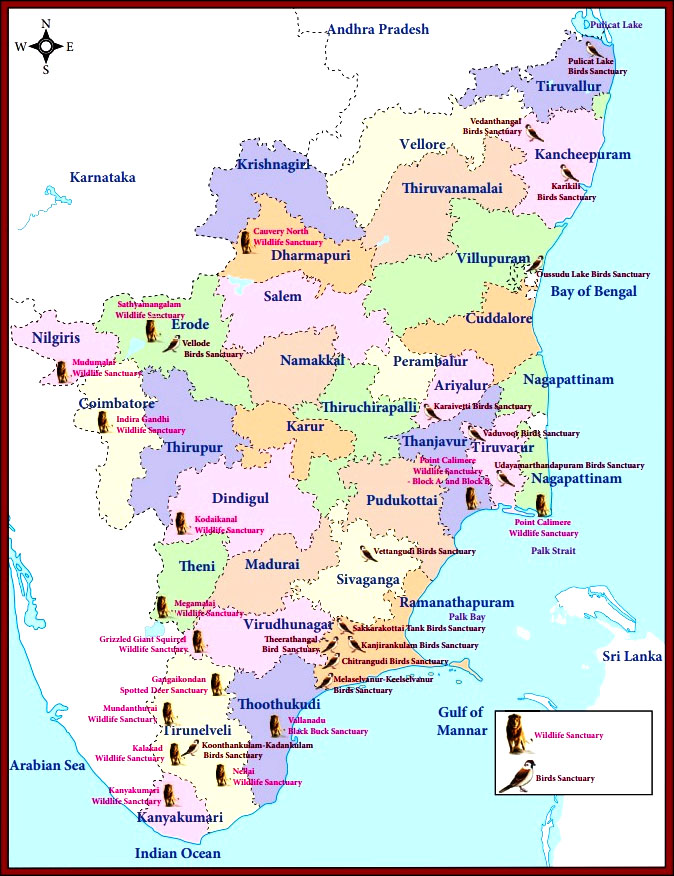Important Facts For Prelims
Glycosmis Albicarpa
- 08 Mar 2022
- 4 min read
Why in News
A team of scientists from the Botanical Survey of India (BSI) has discovered a new gin berry species named Glycosmis albicarpa from the Kanyakumari Wildlife Sanctuary in Tamil Nadu.
- BSI, established in 1890, is the apex research organisation under the Ministry of Environment and Forests (MoEFCC) for carrying out taxonomic and floristic studies on wild plant resources of the country.
- It has the objective to explore plant resources of the country and to identify plant species with economic virtues.
What Is Glycosmis Albicarpa?
- The species is endemic to the southern Western Ghats.
- The species belongs to the Orange family, Rutaceae.

- Many of the related plants of these taxonomic groups are being utilised for their medicinal values and food.
- Most commonly related species of these plants are collected from the wild, mainly for local use as food and medicine.
- Berries of Glycosmis species have the unique characteristic of ‘gin aroma’ and have gained in popularity as an edible fruit.
- The species is also a larval host plant for butterflies like other species of Glycosmis.
What are the Key Points Related to Kanyakumari Wildlife Sanctuary?
- Kanyakumari Wildlife Sanctuary is a 402.4 km2 protected area in Kanyakumari district, Tamil Nadu.
- The virgin forests of Kanyakumari District were transferred from Kerala to Tamil Nadu on the 1st November 1956 as a result of the state reorganisation.
- Kanyakumari Forest Division came into existence from 1st April 1977.
- Kanyakumari Wildlife sanctuary with adjacent areas of Kalakkad Mundanthurai Tiger Reserve and Neyyar Wildlife Sanctuary of Kerala State constitutes the southernmost tip of Western Ghats.
- It is a tiger habitat. There are seven rivers that originate in this forest.
- The natural vegetation of this region represents biomes ranging from southern thorn forests, dry deciduous, moist deciduous, semi evergreen forests to ever green hill sholas with grassy downs.
- The Shola forests of South India derive their name from the Tamil word solai, which means a ‘tropical rainforest’.
- The Sholas are found in the upper reaches of the Nilgiris, Anamalais, Palni hills, Kalakadu, Mundanthurai and Kanyakumari in the states of Tamil Nadu and Kerala.
- The tract is exceedingly rich in wildlife harbouring a variety of animals such as Indian bison, elephants, rock pythons, lion tailed macaques etc. The avifauna, the reptilian and amphibian fauna of this region are also rich and diverse.
- This tip of the Indian peninsula is a unique geographic point surrounded by all three of the sub-continent's vast oceans – the Bay of Bengal, Indian Ocean and the Arabian Sea.
Protected Areas in Tamil Nadu
PYQ
Recently, our scientists have discovered a new and distinct species of banana plant which attains a height of about 11 metres and has orange coloured fruit pulp. In which part of India has it been discovered? (2016)
(a) Andaman Islands
(b) Anaimalai Forests
(c) Maikala Hills
(d) Tropical rain forests of northeast
Ans: (a)





